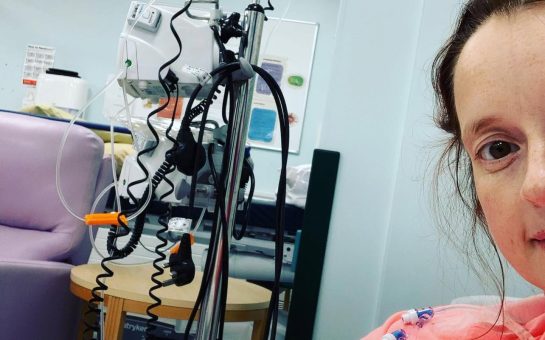A ‘devastating’ Cancer Research UK report shows cases of lung cancer in women are the highest they have EVER been – but not all hope is lost, according to a Manchester scientist developing a new, magnetic treatment for the potentially fatal disease.
In the UK, 20,000 women a year are diagnosed with lung cancer – an increase of 22% over the last 20 years and the highest number of cases documented since records began – according to statistics from the national cancer charity published today.
This steep increase in the number of women being diagnosed with the potentially fatal and notoriously hard to treat form of cancer comes despite the fact the number of women smoking across the country has dropped.
But Cancer Research UK has already doubled its research spend on the disease over the last year, focusing on a way to study the disease once it has spread by isolating and studying individual tumour cells carried in a patient’s blood.
Professor Caroline Dive, a lead scientist on the project from the Cancer Research UK Manchester Institute, said: “It is very challenging to biopsy lung cancer and very hard for the patient too.
“The new technique we’re testing uses magnets to capture rogue cancer cells in patients’ blood and could be a more effective form of biopsy – providing vital information on the biology of the disease.
“Ultimately, this could lead to better ways to treat patients.”
Despite falling smoking rates, the number of lung cancer cases are yet to fall in women.
This reflects different patterns in smoking behaviour, with men’s smoking peaking in the 1940s while women’s peaked around the 1970s.
As lung cancer cases continue to climb, much more needs to be done to tackle the poor long-term survival from this disease – more than 35,000 people die from lung cancer every year in the UK, almost 20,000 men and 16,000 women.
“It really is devastating to see that the number of women diagnosed with lung cancer continues to climb,” Professor Dive said.
“We also know survival remains poor and one of the problems is that lung cancer tends to be diagnosed at a late stage when it has already spread.
“Cancer is very difficult to treat once it has spread around the body.”
The new technique is being presented at the Royal Society’s Summer Science Exhibition this week by staff from Cancer Research UK Manchester Institute who have travelled to London.
It is part of a growing body of lung cancer research aimed at developing blood tests to monitor and understand how it changes and becomes resistant to drugs.
Nell Barrie, senior science communication manager at Cancer Research UK, said: “It’s vital that we keep on fighting against lung cancer.
“It’s the biggest cancer killer in the UK so the Government and the health service must work to help smokers quit by providing more stop smoking services to help people give up this deadly addiction.
“If you smoke, the best thing you can do for your health is stop.
“It’s also essential to invest in new techniques to improve treatment for patients. This new form of biopsy is unique because samples are taken throughout a patient’s treatment allowing researchers to understand how drug resistance develops and how tumours evolve over time.”
Image courtesy of Yale Rosen via FlickR, with thanks.



